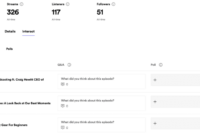Hustle culture is a powerful force in today’s society, influencing how we work, live, and define success. It’s a complex mix of ambition, drive, and often, intense pressure. This exploration delves into the core tenets of hustle culture, examining its positive and negative aspects, and considering alternative approaches to work and achievement.
From the historical roots of the concept to its current manifestations in popular culture and the workplace, we’ll unpack the nuances of this multifaceted phenomenon. Understanding the diverse impacts of hustle culture on different demographics is crucial for a comprehensive understanding.
Defining Hustle Culture
Hustle culture, a pervasive concept in modern society, often evokes a mix of admiration and criticism. It emphasizes relentless effort, dedication, and a drive to achieve success, but its interpretation and impact are multifaceted. Understanding its historical roots, various interpretations, and comparison to traditional work ethics is crucial for a nuanced perspective.
Defining Hustle Culture
Hustle culture is a social phenomenon characterized by an intense focus on hard work, dedication, and ambition, often framed as essential for achieving success. It emphasizes long hours, relentless pursuit of goals, and a perceived necessity to constantly strive for more. This can manifest in various forms, from entrepreneurship and career advancement to personal development and lifestyle choices. Crucially, hustle culture isn’t inherently negative; its interpretation and application often determine its impact.
Historical Context of Hustle Culture
The concept of relentless effort and ambition has existed throughout history. However, the modern form of hustle culture, often associated with social media and entrepreneurial narratives, has roots in the 20th century’s changing economic landscape and the rise of individualistic values. The increasing emphasis on self-reliance and personal responsibility, coupled with access to information and opportunities, fostered a climate ripe for the growth of hustle culture. The narratives of successful individuals, often portrayed in popular media, have contributed to the normalization and widespread adoption of this ethos.
Interpretations and Perspectives
Hustle culture is viewed differently by various individuals and groups. Some see it as a positive force, a catalyst for achievement and personal growth, empowering individuals to pursue their dreams and overcome obstacles. Others view it as an unrealistic and potentially harmful ideology, fostering excessive stress, burnout, and a culture of competition that undervalues well-being. The interpretation often depends on individual circumstances, values, and the specific context in which it’s applied. Furthermore, the cultural background and socioeconomic status can heavily influence the perspective of individuals toward hustle culture.
Comparison to Traditional Work Ethics
Traditional work ethics often emphasize a balance between work and personal life, a degree of job security, and a sense of collective responsibility within an organization. Hustle culture, in contrast, often prioritizes individual achievement and relentless progress, potentially at the expense of work-life balance and collective well-being. This contrast highlights the shifting priorities and values in modern society.
| Definition | Historical Context | Interpretations | Comparison to Traditional Ethics |
|---|---|---|---|
| A social phenomenon emphasizing hard work, dedication, and ambition for achieving success. | Rooted in 20th-century economic changes and individualistic values, fueled by social media and entrepreneurial narratives. | Positive: Catalyst for achievement and personal growth. Negative: Unrealistic, harmful, fostering stress and burnout. | Prioritizes individual achievement over work-life balance and collective well-being. Traditional ethics often emphasize balance, job security, and collective responsibility. |
Characteristics of Hustle Culture
Hustle culture, a pervasive societal phenomenon, emphasizes relentless work and achievement. It often prioritizes individual effort over external factors and societal support. This focus can be both motivating and detrimental, depending on individual circumstances and the context in which it’s applied.
This section delves into the core characteristics of hustle culture, exploring its values, beliefs, behaviors, and how they manifest in various industries. Understanding these facets provides insight into the motivations and potential consequences associated with this cultural trend.
Core Values and Beliefs
Hustle culture is built on a foundation of specific values and beliefs. A strong emphasis on self-reliance and independence is central, often coupled with a belief in the power of individual effort to overcome any obstacle. This often translates into a deep-seated conviction that success is earned through relentless dedication and sacrifice. Furthermore, hustle culture often champions a narrative of overcoming adversity and emphasizes the importance of continuous growth and improvement.
Common Behaviors and Practices
Several behaviors and practices are commonly associated with hustle culture. These include long working hours, prioritizing work over personal life, a relentless pursuit of ambitious goals, and a tendency to view setbacks as temporary obstacles rather than reasons to reconsider one’s approach. Furthermore, a strong emphasis on visible output and quantifiable results is common. This manifests in constant sharing of progress and achievements on social media, often to garner validation and inspiration.
Manifestations in Different Industries
Hustle culture’s impact is far-reaching, affecting various industries. In the tech industry, it can translate into extreme dedication to projects, often pushing teams to work long hours and prioritizing product development over all else. Similarly, in the entrepreneurial sphere, it fuels the pursuit of innovative ideas and rapid growth, even if that means sacrificing personal time. The entertainment industry often sees this culture in the form of relentless work schedules for artists and performers, sometimes at the expense of their well-being. The desire to succeed often outweighs the need to maintain a healthy work-life balance.
Table of Characteristics
| Characteristic | Explanation | Examples | Industry Application |
|---|---|---|---|
| Self-reliance | Emphasis on individual effort and independence, minimizing reliance on external support. | Starting a business with limited resources, seeking mentorship but primarily relying on self-learning. | Entrepreneurship, freelance work |
| Relentless Work Ethic | Dedication to long hours and continuous effort, often prioritizing work over personal life. | Working late into the night, taking work calls on weekends. | Tech startups, customer service, consulting |
| Focus on Output | Prioritizing quantifiable results and visible progress, often sharing accomplishments publicly. | Posting daily work updates on social media, meticulously tracking project milestones. | Marketing, social media management, sales |
| Growth Mindset | Continuous learning and improvement, viewing setbacks as opportunities for growth. | Seeking feedback on performance, actively participating in professional development courses. | Education, corporate training, professional development |
Positive Aspects of Hustle Culture
Hustle culture, while often criticized, can have undeniable benefits when approached with a balanced perspective. It’s about focused effort and dedication, not simply relentless work. Understanding the potential positives, along with the downsides, is key to leveraging the energy and drive inherent in this mindset constructively.
Embracing hustle culture, when managed effectively, can lead to remarkable personal and professional growth. It’s a powerful motivator that, when channeled appropriately, can drive innovation, productivity, and success. A key element is recognizing that the focus is on achieving goals, not just working relentlessly.
Potential Benefits and Advantages
The drive to succeed often fuels positive outcomes. A commitment to excellence, when combined with strategic planning and realistic expectations, can lead to significant accomplishments. This dedication to achieving goals, coupled with effective time management, can be extremely beneficial. For example, many successful entrepreneurs credit their success to a strong work ethic and a willingness to put in long hours.
Examples of Success
Numerous individuals and businesses have leveraged the principles of hustle culture to achieve impressive results. Entrepreneurs who have built successful companies often cite long hours and a relentless focus on their goals as pivotal factors in their achievements. Think of Elon Musk, whose dedication to innovation and pushing technological boundaries exemplifies this drive. Similarly, successful athletes and artists often attribute their achievements to relentless practice and a strong work ethic.
Motivations Behind Adopting Hustle Culture Practices
Individuals often embrace hustle culture due to a desire for personal and professional advancement. The allure of achievement, recognition, and financial rewards can be powerful motivators. The drive to achieve financial independence and live a fulfilling life is often a significant factor in the motivations of those adopting this mindset. A strong sense of purpose, coupled with the desire to leave a positive impact on the world, also drives many individuals.
How Hustle Culture Fosters Innovation and Productivity
The drive and dedication inherent in hustle culture can stimulate innovation. When individuals are motivated to achieve goals, they are more likely to experiment, take risks, and develop creative solutions. The intense focus on achieving objectives fosters productivity. Effective time management and goal setting, crucial elements of hustle culture, help individuals maximize their efforts and achieve desired outcomes.
Positive Outcomes of Hustle Culture
- Increased Productivity: Focused effort and dedicated work ethic can result in enhanced productivity, leading to higher output and faster progress towards goals. This often involves strategic planning and effective time management techniques.
- Personal Growth: The process of striving for excellence and achieving goals fosters personal development, discipline, and resilience. Overcoming challenges and learning from setbacks strengthens character and self-belief.
- Financial Success: A strong work ethic and dedicated effort often translate into financial success. This is particularly evident in entrepreneurial endeavors where dedication and innovation are crucial for success.
- Professional Advancement: The drive to excel and take on new challenges can lead to rapid professional advancement, with individuals often taking on greater responsibilities and acquiring new skills.
- Innovation and Creativity: The constant pursuit of achieving goals often stimulates innovation and creativity. The willingness to experiment and take calculated risks fosters new ideas and approaches.
Negative Aspects of Hustle Culture
Hustle culture, while often presented as a path to success, can have significant downsides. The relentless pursuit of productivity and constant striving can lead to a detrimental cycle of stress, burnout, and even physical and mental health problems. It’s crucial to recognize these potential pitfalls to understand the full picture and maintain a balanced approach.
Potential Impacts on Mental and Physical Health
The constant pressure to “hustle” can significantly impact mental and physical well-being. Individuals driven by hustle culture often prioritize work over personal life, neglecting self-care and social connections. This can lead to feelings of isolation, anxiety, and depression. Chronic stress, a frequent companion of the hustle mentality, can manifest in physical symptoms such as headaches, sleep disturbances, and weakened immunity. The intense focus on output without adequate rest can also contribute to fatigue and decreased cognitive function. Recognizing these connections between lifestyle and health is vital for individuals seeking a sustainable and fulfilling path.
Burnout and Stress
The relentless pursuit of productivity and the constant striving for more can easily lead to burnout. When the line between work and personal life blurs, individuals may experience chronic stress and emotional exhaustion. This can manifest in feelings of overwhelm, cynicism, and a loss of motivation. Burnout is a serious condition that can impact every aspect of life, making it crucial to recognize the warning signs and prioritize self-care. Real-world examples include employees who are constantly overworked, taking on extra responsibilities without adequate support, or failing to establish healthy boundaries between work and personal life.
Toxic Work Environments
A culture of relentless competition and pressure, inherent in hustle culture, can foster a toxic work environment. This environment may encourage cutthroat competition, where individuals prioritize personal gain over teamwork and collaboration. Excessive workloads, unrealistic deadlines, and a lack of support can create a hostile and stressful atmosphere. In extreme cases, this can lead to workplace bullying, harassment, and a decrease in overall employee morale. This ultimately harms productivity and well-being.
Table: Negative Aspects of Hustle Culture
| Negative Aspect | Explanation | Potential Impact | Mitigation Strategies |
|---|---|---|---|
| Excessive Workload | Unrealistic expectations and demands that exceed reasonable capacity. | Burnout, stress, reduced productivity, health problems, and decreased job satisfaction. | Setting realistic goals, prioritizing tasks, seeking support from colleagues or supervisors, and establishing healthy work-life boundaries. |
| Lack of Work-Life Balance | Blurred lines between professional and personal life, leading to constant pressure. | Stress, anxiety, burnout, relationship problems, and overall well-being issues. | Creating clear boundaries between work and personal time, scheduling downtime, and engaging in activities outside of work. |
| Cutthroat Competition | Prioritizing personal gain over collaboration and teamwork, creating a hostile atmosphere. | Increased stress, reduced morale, a decline in workplace relationships, and decreased productivity. | Promoting teamwork and collaboration, encouraging supportive relationships, and focusing on shared success. |
| Lack of Support | Inadequate resources, mentorship, or guidance to manage the demands of hustle culture. | Increased stress, isolation, and feelings of inadequacy. | Seeking mentorship or guidance, building supportive networks, and utilizing available resources. |
Impact on Different Groups
Hustle culture, while often lauded for its drive and ambition, doesn’t affect everyone equally. Its impact varies significantly across different demographic groups, influencing experiences in the workplace and beyond. Understanding these nuances is crucial to a comprehensive evaluation of hustle culture’s effect on society.
Different demographics experience hustle culture’s pressures in unique ways. The emphasis on relentless work and achievement can exacerbate existing inequalities, creating barriers for some groups while seeming to offer opportunities to others. Examining the impact on various groups reveals a complex interplay between individual circumstances and societal norms.
Impact on Young Adults
Young adults, often entering the workforce or pursuing higher education, are particularly susceptible to the pressures of hustle culture. The constant barrage of messages emphasizing productivity and self-improvement can lead to feelings of inadequacy or anxiety if not balanced with self-care and realistic expectations. The pressure to succeed quickly can also lead to burnout or a sense of being perpetually behind. Many young adults feel compelled to constantly prove themselves, sometimes leading to unhealthy work-life balance. The availability of instant gratification and social comparison tools on platforms like social media amplifies this pressure.
Impact on Women
Women frequently face a double burden, balancing work and family responsibilities while often being expected to conform to traditional gender roles. The relentless pursuit of success, often portrayed through a male-dominated lens, can make it difficult for women to navigate their careers and personal lives. Women may experience additional scrutiny and pressure to prove their worthiness in a traditionally male-dominated environment. They are often judged against different standards than their male counterparts, leading to potential burnout or feelings of inadequacy. This is compounded by the expectation of perpetual hustle, often seen as a necessity for professional advancement.
Impact on Minorities
Minorities often face unique challenges in the workplace, compounded by the pressures of hustle culture. The added burden of systemic bias and discrimination can make it difficult to compete in a meritocratic environment that is often perceived as favouring certain groups. They may be expected to work harder and prove themselves more than their counterparts. Minorities may also encounter cultural misunderstandings and microaggressions, further complicating their experiences. The relentless pursuit of success in a system that has historically disadvantaged them can lead to added stress and anxiety.
Impact Across Social and Economic Backgrounds
The impact of hustle culture varies drastically based on social and economic background. Those from privileged backgrounds often have more resources and support systems to navigate the pressures of hustle culture. Conversely, those from disadvantaged backgrounds may face additional barriers and obstacles in pursuing their goals. The lack of access to resources or support networks can exacerbate the negative impacts of hustle culture, creating a cycle of disadvantage. The same messaging about work and success can have very different outcomes based on the individual’s starting point.
Comparison of Impacts Across Demographic Groups
| Demographic Group | Impact | Example | Additional Considerations |
|---|---|---|---|
| Young Adults | Increased pressure to succeed quickly, potential for burnout, feelings of inadequacy, unhealthy work-life balance | A recent college graduate feeling overwhelmed by the need to find a high-paying job immediately, despite a lack of experience. | Social media comparison, access to resources, support networks |
| Women | Double burden of work and family, scrutiny, pressure to conform to traditional gender roles, potential for unequal pay and advancement opportunities. | A working mother feeling pressured to maintain a demanding career while also managing childcare responsibilities. | Gender stereotypes, societal expectations, access to childcare and family leave |
| Minorities | Systemic bias, discrimination, need to prove themselves more, potential for microaggressions, compounded stress | A person of color facing repeated bias in job interviews, leading to feelings of frustration and demotivation. | Historical disadvantages, systemic inequalities, cultural sensitivity training |
| Lower Socioeconomic Background | Lack of resources and support systems, greater difficulty navigating the pressures of hustle culture, perpetuation of cycles of disadvantage. | A young adult from a low-income family facing financial barriers to education and career advancement. | Limited access to mentorship, networking opportunities, financial aid |
Hustle Culture in Popular Culture
Hustle culture, with its emphasis on relentless work and achievement, has become a pervasive theme in modern popular culture. It’s often presented as a path to success, but the complexities and potential downsides are frequently overlooked or minimized in media portrayals. This section explores how hustle culture is depicted in various forms of media, the role of influencers in shaping public perception, and the impact of these portrayals on the public’s understanding of work ethic and personal well-being.
Media Portrayals of Hustle Culture
Popular media frequently presents hustle culture as a desirable and necessary aspect of achieving success. Movies, television shows, and social media platforms often feature characters who exemplify the relentless pursuit of goals, often at the expense of personal relationships or well-being. This portrayal can normalize unhealthy work habits and unrealistic expectations. It can also inadvertently create pressure and anxiety for viewers, potentially leading to unhealthy comparisons and self-criticism.
The Role of Influencers and Social Media
Social media influencers play a significant role in promoting and shaping perceptions of hustle culture. Their curated online personas, showcasing a seemingly effortless climb to success, often portray a distorted and idealized view of reality. This constant bombardment of aspirational content can create unrealistic expectations and pressure on followers to emulate these behaviors, sometimes at the cost of their own well-being. The relentless pursuit of “content” and online validation can lead to a vicious cycle of striving and comparison.
Construction and Dissemination of Hustle Culture Narratives
The narratives surrounding hustle culture are constructed and disseminated through various channels, including:
- Movies and Television: Often depict characters driven by ambition and striving for success, showcasing relentless effort and late nights as hallmarks of achievement.
- Social Media: Influencers frequently highlight the “hustle” as a key element of their success stories, often emphasizing the sacrifices and long hours required.
- Books and Articles: Many self-help books and articles promote the idea of the “hustle” as a catalyst for achieving financial and personal success.
These narratives frequently downplay the importance of rest, work-life balance, and mental well-being, often presenting them as obstacles to overcome rather than integral parts of a healthy lifestyle.
Examples of Influencing Public Understanding
The portrayal of hustle culture in media can significantly influence public understanding of work ethic and success. For example, a television show that consistently depicts characters sacrificing their personal lives for their careers can normalize this behavior, inadvertently shaping viewers’ perceptions of what constitutes a successful life. Similarly, social media influencers who portray a constant stream of productivity can create a sense of inadequacy and pressure on followers to match their output.
Table: Analysis of Hustle Culture in Media
| Media Source | Representation | Impact | Critical Analysis |
|---|---|---|---|
| Reality TV Shows | Showcasing the relentless pursuit of goals, often prioritizing career over personal relationships. | Can normalize unhealthy work habits, creating pressure on viewers to emulate the characters’ behaviors. | The focus on material gain and quick success can lead to a distorted view of reality. |
| Social Media Influencers | Portraying a seemingly effortless path to success, highlighting long hours and sacrifices as key elements. | Can create unrealistic expectations and pressure on followers to emulate the influencer’s behaviors, potentially leading to burnout and anxiety. | The curated nature of social media often obscures the struggles and challenges involved in achieving success. |
| Movies | Depicting characters driven by ambition and showcasing the relentless pursuit of goals, often neglecting personal well-being. | Can normalize a “work-hard, play-hard” mentality, potentially contributing to a culture of burnout and stress. | Frequently presents a simplistic view of success, overlooking the multifaceted nature of personal and professional growth. |
| Self-Help Books | Promoting the “hustle” as a key to achieving success, often emphasizing the sacrifices required. | Can provide motivation and guidance, but potentially promoting a culture of overwork and neglecting personal well-being. | May overlook the importance of balance and sustainable practices for long-term success. |
Alternative Perspectives on Work and Success
Hustle culture, while sometimes promoting ambition and drive, often overlooks crucial aspects of well-being and sustainable success. Alternative perspectives on work and success emphasize a more balanced approach, recognizing the importance of personal life and mental health alongside professional achievements. These perspectives challenge the notion that relentless pursuit of productivity is the sole path to fulfillment.
Shifting away from the relentless drive often associated with hustle culture requires a fundamental change in mindset. This involves prioritizing well-being, recognizing the value of downtime, and understanding that success is multifaceted, encompassing personal growth, relationships, and contribution to society, not just financial gain. This holistic approach allows for a more sustainable and fulfilling career trajectory.
Alternative Approaches to Work
Different models of work are emerging, challenging the traditional 9-to-5 structure. These models emphasize flexibility, autonomy, and a better integration of personal life and work. Flexible work arrangements, including remote work and compressed workweeks, offer employees more control over their schedules and improve work-life balance. This can lead to increased productivity, reduced stress, and a more engaged workforce.
Work-Life Balance
Work-life balance is not merely a desirable goal but a critical element for overall well-being. Maintaining a healthy equilibrium between professional responsibilities and personal life is essential for preventing burnout and fostering long-term success. It allows for sufficient rest, time with loved ones, and pursuing hobbies and interests, ultimately leading to a more fulfilling life. Ignoring work-life balance often results in decreased productivity and increased stress, ultimately hindering both professional and personal growth.
Well-being and Mental Health in the Workplace
Recognizing and prioritizing mental health in the workplace is crucial for creating a supportive and productive environment. Companies that prioritize well-being often see improvements in employee engagement, retention, and overall performance. This includes offering resources like mental health days, mindfulness programs, and access to therapists. These initiatives not only support employee well-being but also create a positive and productive work culture.
Examples of Alternative Work Models
Numerous companies and individuals are championing alternative work models. Companies like Buffer, known for its flexible work policies, have seen positive outcomes in employee satisfaction and retention. Individuals, such as freelancers and entrepreneurs, often enjoy the autonomy and flexibility of their work arrangements, balancing work with personal commitments. These examples showcase the effectiveness of alternative work models in creating a healthier and more sustainable work environment.
Resources for Exploring Alternative Work Perspectives
Several resources can help individuals explore alternative perspectives on work and success. Websites like FlexJobs and Remote.co offer information and resources on remote work opportunities. Books and articles on topics such as work-life balance, mindfulness, and well-being provide valuable insights. Online communities and support groups can also offer valuable perspectives and encouragement.
The Future of Hustle Culture

Source: demilked.com
Hustle culture is all about pushing yourself hard, right? Well, if you’re looking for a place to recharge after a long day of hustling, check out some luxury hotels in the UK with stunning city views. Luxury hotels in the UK with stunning city views offer the perfect blend of relaxation and breathtaking views, giving you a much-needed break while still inspiring you to keep going.
It’s all about balance, even in the hustle.
Hustle culture, a pervasive ideology emphasizing relentless work and achievement, is likely to evolve significantly in the coming years. The interplay of technological advancements, shifting societal values, and economic realities will reshape its definition and impact. Understanding these potential transformations is crucial for individuals and organizations navigating the future of work.
Potential Evolution of Hustle Culture
The relentless pursuit of success that defines hustle culture might adapt to more sustainable and balanced models. There’s a growing awareness of burnout and the importance of well-being, potentially leading to a more nuanced approach to work. Instead of prioritizing non-stop activity, a future iteration of hustle culture could focus on strategic productivity and focused effort.
Impact of Emerging Technologies
Automation and AI are likely to alter the landscape of work, impacting the types of jobs available and the skills needed to succeed. Individuals will need to adapt to rapidly changing job markets, embracing lifelong learning and upskilling to maintain relevance. The future of work will require agility and adaptability to keep pace with technological advancements.
Societal Changes and Hustle Culture
Changing societal values, particularly around work-life balance and mental health, are influencing perceptions of success. A greater emphasis on purpose and meaning alongside financial achievement is anticipated. Individuals may prioritize fulfillment and well-being alongside their career goals.
Potential Shifts in the Definition of Success
The concept of success is likely to broaden beyond traditional metrics of wealth and career advancement. Factors such as personal growth, community impact, and creative expression may become more important dimensions of success. This shift is influenced by the growing recognition of the importance of holistic well-being.
Challenges and Opportunities for Individuals
Adapting to a changing job market and embracing continuous learning are key challenges for individuals. The ability to learn new skills and adapt to new technologies will be crucial for maintaining a successful career. However, this presents opportunities for individuals to reinvent themselves and pursue careers that align with their evolving values and interests.
Challenges and Opportunities for Organizations
Organizations will need to cultivate a supportive and flexible work environment to retain talent and foster well-being. This includes promoting work-life balance, providing opportunities for skill development, and understanding the importance of purpose-driven work. Organizations that adapt to these evolving needs will likely experience greater success and retention.
Flowchart of Potential Future Trajectory

[Placeholder for an image that would depict a flowchart illustrating potential future trajectories of hustle culture. The flowchart would have nodes representing different factors influencing the culture (e.g., technology, societal changes, personal values), and arrows showing how these factors might interact to shape the future of hustle culture. The flowchart should illustrate different possible paths, from a continued focus on relentless activity to a more balanced and purpose-driven approach.]
Conclusive Thoughts
In conclusion, hustle culture, while offering potential benefits for some, also presents significant risks. The intense pressure and relentless pursuit of success can lead to burnout and a distorted view of well-being. Ultimately, finding a balance between ambition and well-being is key to navigating the complexities of modern work and life. We must critically examine the messages surrounding success and consider alternative perspectives that prioritize work-life balance and mental health.
Commonly Asked Questions
What are some common misconceptions about hustle culture?
Many believe hustle culture equates to simply working harder. However, it’s often more nuanced, involving a specific set of values and behaviors that can be both motivating and detrimental. It’s not inherently bad, but the way it’s practiced can have a significant impact on individuals and society.
How does hustle culture affect different generations?
Different generations experience hustle culture differently. Younger generations may feel pressured to constantly prove themselves, while older generations might view it as a more traditional work ethic. The effects can vary significantly depending on individual circumstances and societal contexts.
Can hustle culture be beneficial?
Certainly, hustle culture can motivate individuals to achieve goals and foster innovation. However, it’s crucial to recognize that balance and well-being are essential for long-term success and personal fulfillment.
Hustle culture is all about putting in the extra hours, right? But sometimes that intense focus can bleed into a corporate lifestyle, where the pressure to succeed is always high. A good understanding of Corporate lifestyle principles can actually help you manage that hustle more effectively, preventing burnout and making the whole thing more sustainable.
Ultimately, a balanced approach is key to any successful hustle.
Hustle culture is all about pushing hard, right? But what if that push could be more sustainable? Think about how sustainable architecture, like Sustainable architecture , prioritizes eco-friendly building practices and resource efficiency. Ultimately, hustle culture can be adapted to incorporate similar principles for a more responsible and lasting impact.
Hustle culture can be intense, right? You’re always pushing yourself, and sometimes, you just need a great breakfast to fuel that drive. If you’re looking for a place to recharge and have a delicious breakfast to kickstart your day, checking out hotels in the UK with a great selection of breakfast options is a great idea. hotels in the UK with a great selection of breakfast options might help you find the perfect balance for your next hustle.
Hustle culture is all about putting in serious hours, right? But how does that play out in different living situations? The pressure to succeed often feels amplified in urban environments, but Suburban vs. city life can also bring its own unique challenges. Ultimately, the drive to hustle seems to be a universal need, regardless of where you choose to live.





